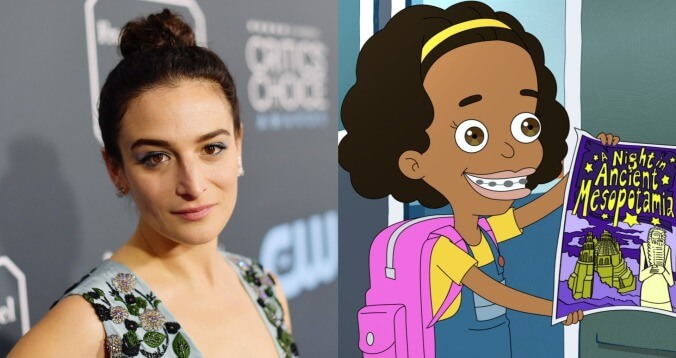Jenny Slate exits Big Mouth: "Black characters should be played by Black people"

Amid the comedy industry’s current reckoning with its treatment of the Black community, comedian and actress Jenny Slate has exited Netflix’s Big Mouth where she played a biracial character. For four seasons (the latest of which has not premiered yet), Slate was the voice of Missy, a precocious Bridgeton Middle School student who is half Black and half Jewish. The actress took to her social media pages to explain her choice to leave the show.
“At the start of the show, I reasoned with myself that it was permissible for me to play ‘Missy’ because her mom is Jewish and white — as am I,” Slate wrote. But ‘Missy’ is also Black and Black characters on an animated show should be played by Black people.” Big Mouth co-creators Nick Kroll, Andrew Goldberg, Mark Levin, and Jennifer Flackett followed Slate’s announcement with a statement of support and apology on behalf of the series’ creative team:
“We sincerely apologize for and regret our original decision to cast a white actor to voice a biracial character,” the statement says. “We made a mistake, took our privilege for granted, and we’re working hard to do better moving forward.” The creators also promise to recast the role with a Black actor before thanking Slate for her work.
Big Mouth is not the only show that has faced criticism for its choice to cast white voice actors in Black roles. Apple TV+’s new animated musical comedy series Central Park features a young biracial girl named Molly—a comic book artist who creates a superhero with powers in her afro puffs—who is voiced by Kristen Bell. When the issue was brought to co-creator and star Josh Gad, the actor confirmed that Central Park’s creative team was already facilitating the discussion.
While it is objectively good to witness these creators—and the comedy industry as a whole—reconsider past errors and use this time to hold themselves accountable, there needs to be a greater effort to examine why these choices were seemingly considered fine just one month ago as opposed to now, after the seismic global response to the murder of George Floyd. If there are any other bastions of comedy that plan on very suddenly examining how they’ve upheld systems of inequality (as they should, because make no mistake: These are great and necessary apologies), it wouldn’t hurt to also address the curious timing.
Looking for ways to advocate for Black lives? Check out this list of resources by our sister site Lifehacker for ways to get involved.